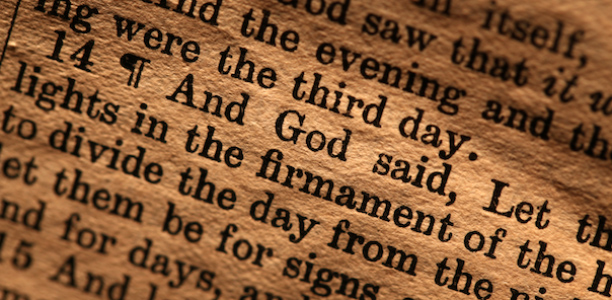By David Faust
 God led his people on an extended camping trip through the wilderness for 40 years. Water was scarce. Food was available but predictable. Tempers were edgy.
God led his people on an extended camping trip through the wilderness for 40 years. Water was scarce. Food was available but predictable. Tempers were edgy.
Morning after morning, God provided a unique nutritional supplement: thin white flakes that looked like frost on the ground. When baked or boiled, the flakes tasted like wafers made with honey. When the people first saw this unusual substance, they wondered what it was; so it was called manna, which sounds like the Hebrew for “What is it?” God faithfully provided manna six days a week. On the sixth day, the people gathered enough to eat on the seventh day so they could rest on the Sabbath (Exodus 16).
Everyday Blessings
Years ago George Alder, a longtime columnist for The Lookout, reflected on what it must have been like for the Israelites to eat manna every day:
“Children were born and raised up to adulthood never planting or harvesting a crop of any kind. . . . Six mornings each week, the people just went out and gathered the manna that God rained down for them. How long would it take for the sense of the miraculous to go out of that? The new generation only heard stories of wheat fields, onions, garlic, and other vegetables and fruits. Egypt must have seemed to them like some magical world from which their parents and grandparents had come. After those stories of the old times, manna must have seemed awfully plain and monotonous, even if it did come down regularly and in abundance.”
Do we take our daily bread for granted? In the first hour after we get out of bed in the morning, we enjoy more blessings that we can count. Electricity lights the room. A microwave cooks breakfast. Clean, hot water pours from the shower. If those blessings were taken away, most of us would consider it inconvenient, if not intolerable.
Do we appreciate common privileges like the opportunity to pray, read the Bible, and interact with friends? Have even grand truths like the miracle of Jesus’ death, burial, and resurrection become commonplace? In the first-century church, the resurrection of Christ was a daily source of inspiration and empowerment, but for many today it barely elicits a polite nod.
Providing in a Different Way
After Moses died, brave General Joshua was installed as the Israelites’ new leader. They crossed the Jordan River and prepared to enter the promised land. Camping there near Jericho, they celebrated the Passover feast.
The Scripture records, “The day after the Passover, that very day, they ate some of the produce of the land: unleavened bread and roasted grain. The manna stopped the day after they ate this food from the land; there was no longer any manna for the Israelites, but that year they ate the produce of Canaan” (Joshua 5:11, 12).
George Alder continued: “God’s desert welfare program was over for Israel. Now work was required. The people became farmers. God provided the land, the water, the sunlight, but they had to care for the crops. And for how long then did this new way of getting food seem miraculous? a year? five years? ten years? We don’t know. . . . One must keep faith active to know that manna, grain, grapes, cattle, and sheep are all a part of his creative power and providence.”
It’s easy to overlook the remarkable blessings God provides—until the day the manna stops.
David Faust serves as the Associate Minister at East 91st Street Christian Church in Indianapolis, Indiana.
The Lookout’s Bible Reading Plan for April 5, 2015
Use this guide to read through the Bible in 12 months. Follow David Faust’s comments on the highlighted text in every issue of The Lookout.
Mark 1:1-8
1 Corinthians 1:1-17
Psalm 72
Joshua 1, 2
Mark 1:9-20
1 Corinthians 1:18-31
Psalm 73
Joshua 3–5
Mark 1:21-34
1 Corinthians 2
Psalm 74
Joshua 6, 7
Mark 1:35-45
1 Corinthians 3
Psalm 75
Joshua 8, 9
Mark 2:1-12
1 Corinthians 4
Psalm 76
Joshua 10–12
Mark 2:13-17
1 Corinthians 5
Psalm 77
Joshua 13, 14



Comments: no replies